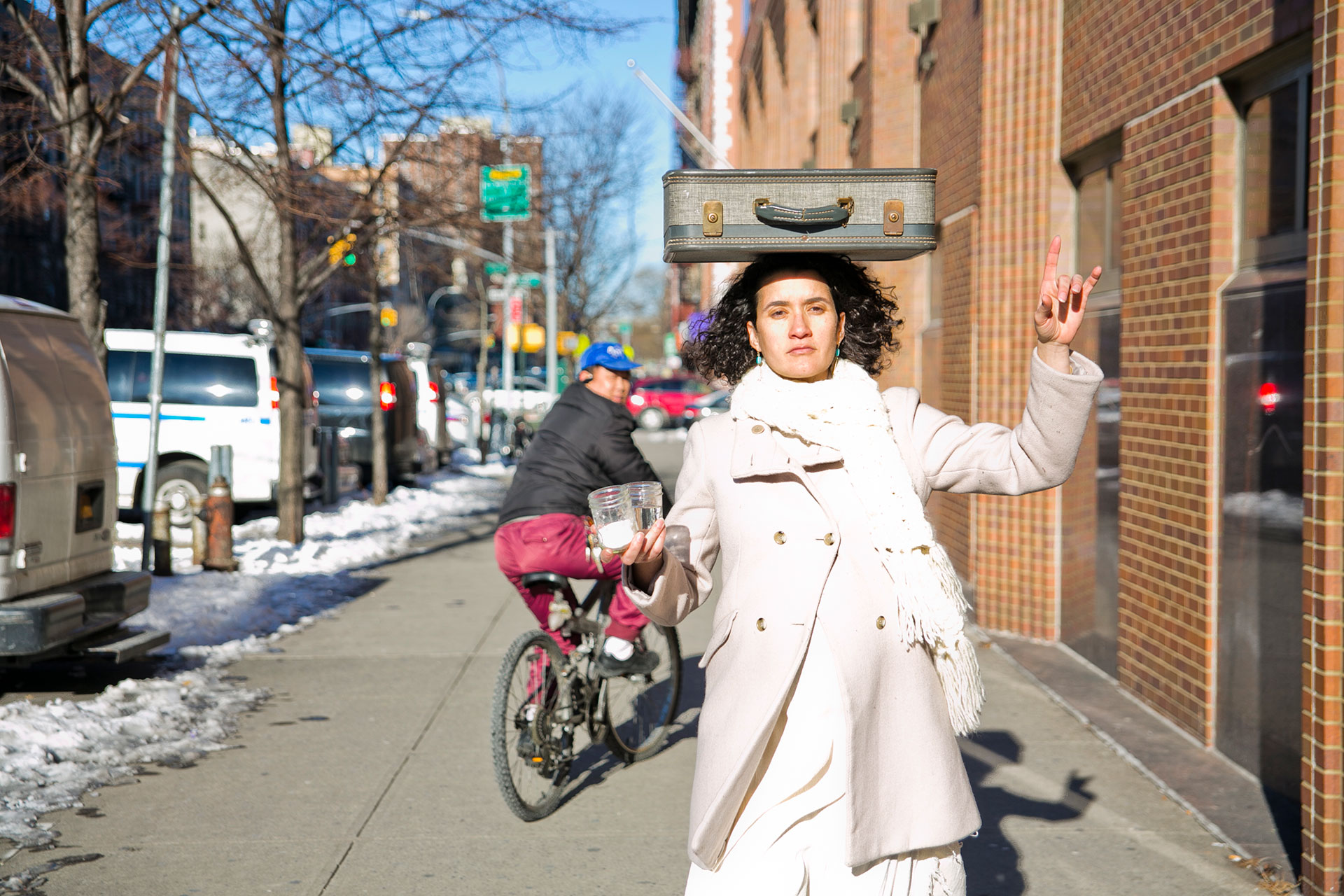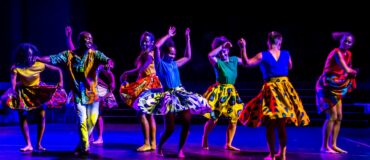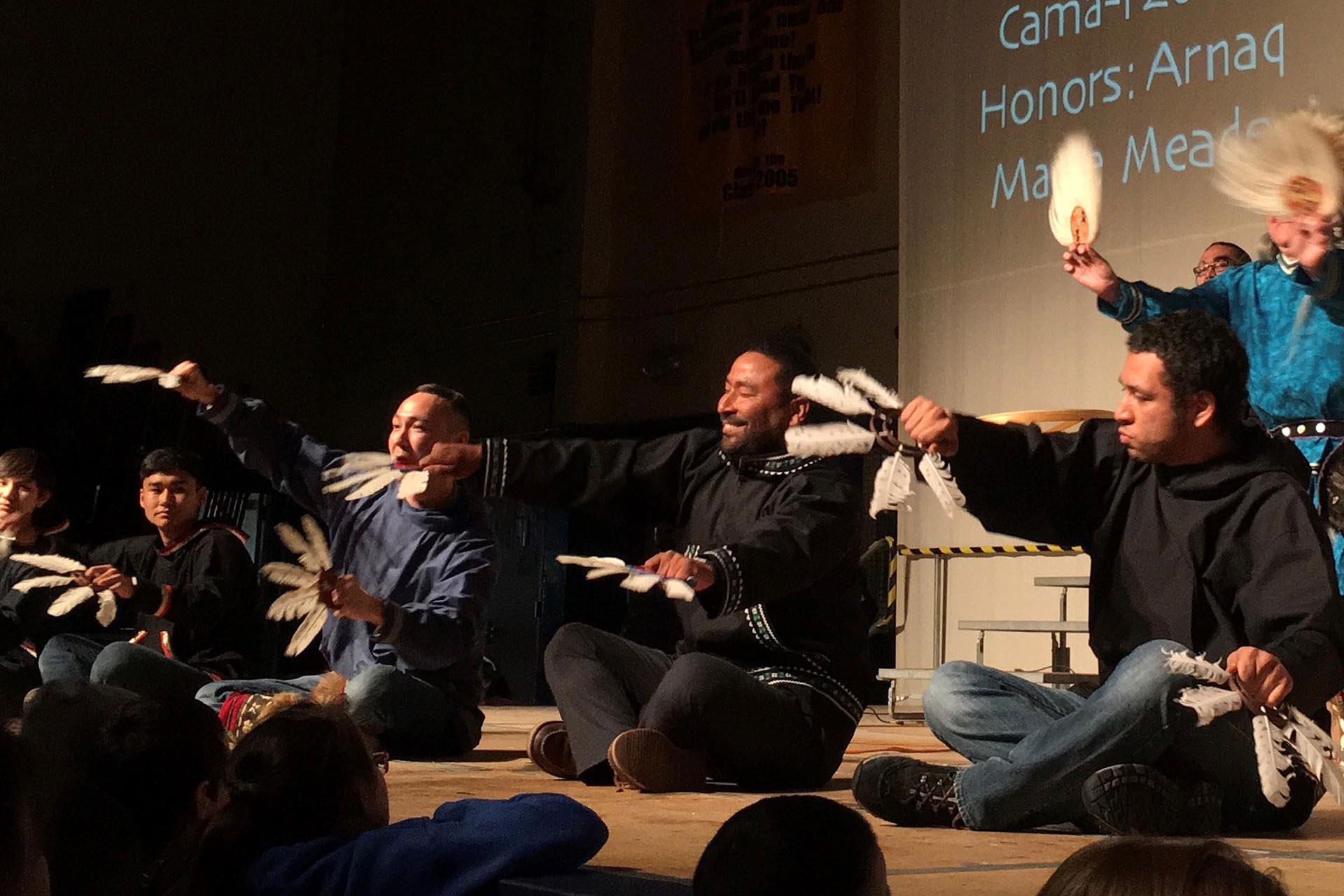By Sasha Jelan
Sasha Jelan is a 2020/21 Dance/USA Archiving & Preservation Fellow. Phase 1 of her Fellowship ran from June-September 2020, and was hosted remotely by Viver Brasil. For Phase 2 in the summer of 2021, Sasha is continuing her work with Viver Brasil, remotely and in site. Read more about the Fellowship program here. This is the first part of Sasha’s blog. Read the second part here.
October 14, 2020
Entering the Dance/USA Archiving & Preservation Fellowship, I was very excited to travel to Los Angeles and work hands-on as an archivist with my host organization, Viver Brasil. Covid-19, however, had other plans and became the catalyst for a shift in archival practice as we know it. My practice became firmly rooted in the present and responded only to what was immediately available to me.

Sasha Jelan (right) learning about Viver Brasil on a call with the founder, Linda Yudin (left)
Transitioning from a hands-on approach to accepting a remote practice required a lot of communication and flexibility. During the initial meetings with Viver Brasil, I had the opportunity to gradually learn about the company and the types of records it produced. What I found most valuable, however, was the opportunity to learn about the founder of the company, Linda Yudin. I had the pleasure of getting to know her as an individual, learning what excites and frustrates her, the personal journey she took and how she organizes and manages the wealth of knowledge that is Viver Brasil, a Los Angeles-based dance company that honors Brazil’s African legacy through its engagement and education of Afro-Brazilian dance and music. As the archivist, these conversations ultimately fostered a well rounded understanding of the company and its founder.
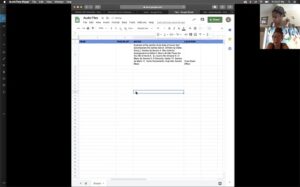
Linda Yudin and Sasha Jelan working on an inventory of audio files, September 2020
The experience challenged my thinking of what an archive is and how one can archive remotely. It also highlighted a crucial component of archiving: education. The main focus of our bi-weekly Zoom meetings was educating the Viver Brasil staff on archiving fundamentals A lot of my work consisted of tutorials, introducing archival theory and translating a lot of the archival jargon to more user friendly terminology. One of the tutorials outlined a general folder hierarchy I created for the company to organize their existing digital assets. This hierarchy followed a specific order and could be used in different areas of their collection. I also illustrated how to download and upload this hierarchy in a way that would retain its order on multiple platforms. As remote archival practice and the creation of born-digital materials become more prevalent, basic archival education will prove invaluable to smaller, independent community archives.

Sasha Jelan and Linda Yudin viewing performance footage from Viver Brasil’s archive, September 2020.
The most challenging part of this experience has been how to encourage an archival practice, independent of an on-site archivist. My biggest concern was providing a broad enough framework that would foster confidence independent of having an archivist on staff. At the close of Phase 1, I created a few tutorials and templates for Viver Brasil to refer back to during the interim break. I am hoping that these will help guide some of their record keeping practices so that in Phase 2 the hands-on approach will be intuitive. Our goal for Phase 2 is to inventory, assess, and begin organizing the records in the physical archive, making accessible the wealth of information Viver Brasil has accumulated over the years.
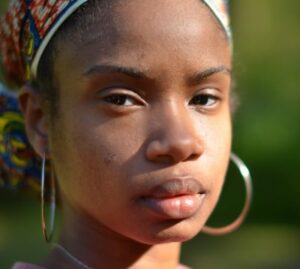
Sasha Jelan is currently pursuing a masters degree in Archival Studies at Clayton State University. She received her BA in Art at the University of Southern California’s Roski School of Art & Design, with an emphasis in photography.
Sasha’s professional experience includes supporting the digitization and educational programming of institutions such as the Metropolitan Museum of Art and the Studio Museum in Harlem. Her archival practice is rooted in re-thinking and reclaiming the authorship and access of the African Diaspora.
Dance was a constant in Sasha’s youth, where she studied West African, Ballet and Modern dance techniques. Sasha is very excited to revisit the history of African Dance with Viver Brasil, and to support an organization whose mission closely aligns with her archival interests.
____
We accept submissions on topics relevant to the field: advocacy, artistic issues, arts policy, community building, development, employment, engagement, touring, and other topics that deal with the business of dance. We cannot publish criticism, single-company season announcements, and single-company or single artist profiles. Additionally, we welcome feedback on articles. If you have a topic that you would like to see addressed or feedback, please contact communications@danceusa.org.
Disclaimer: Opinions expressed in guest posts do not necessarily represent the viewpoints of Dance/USA.
